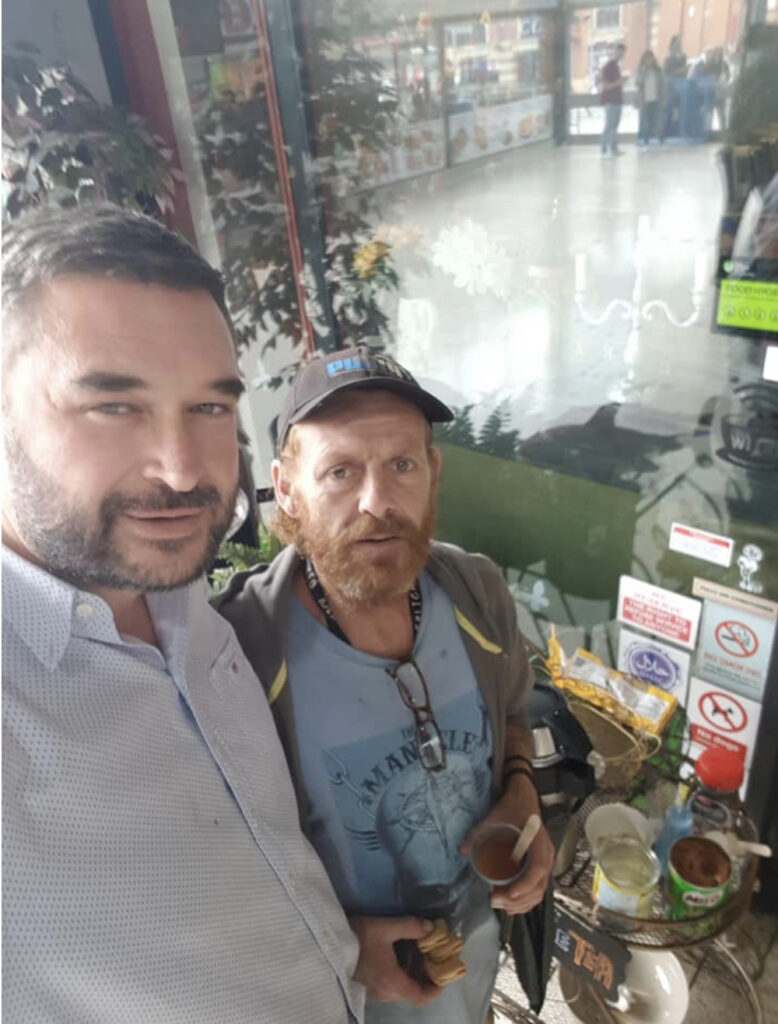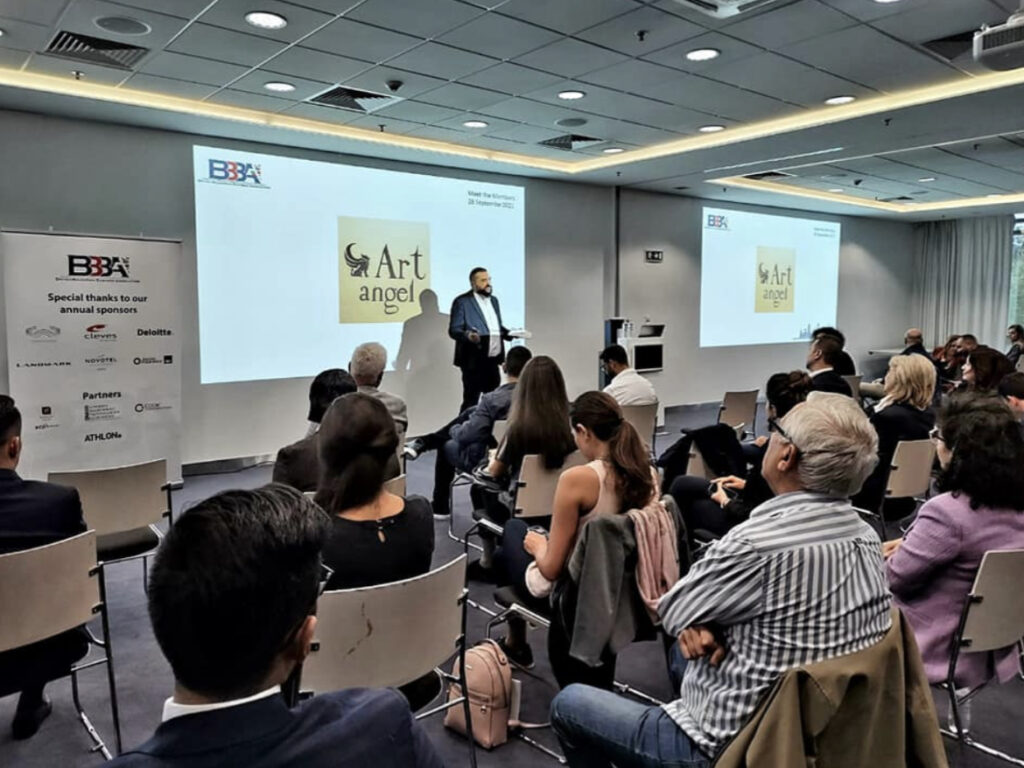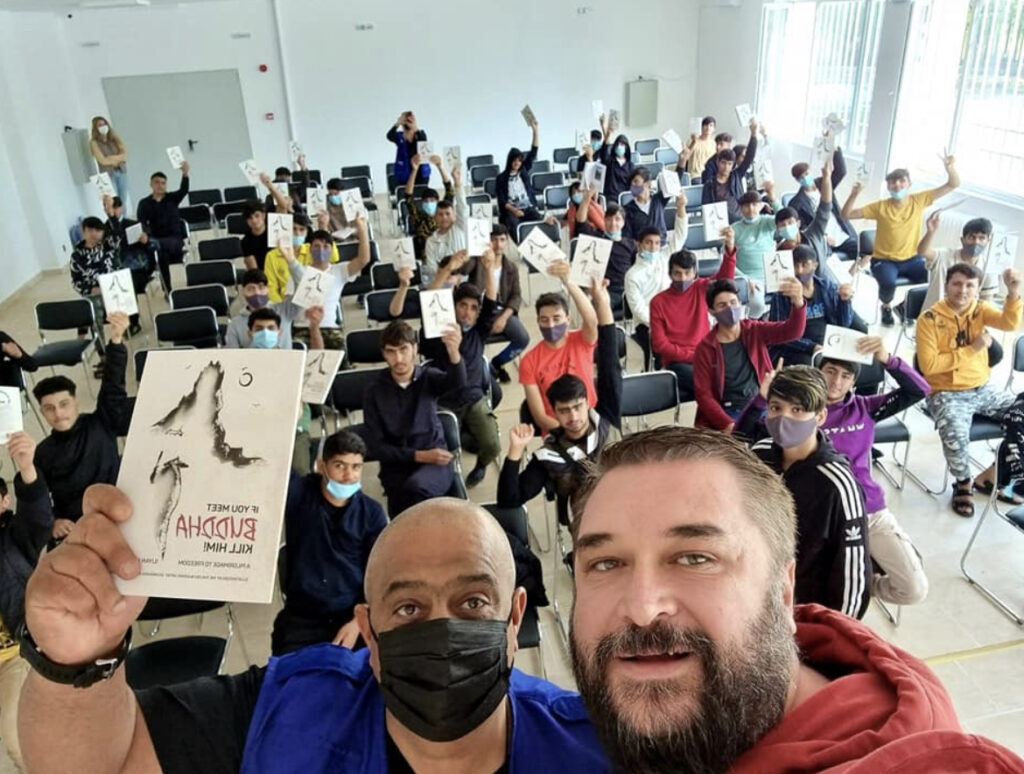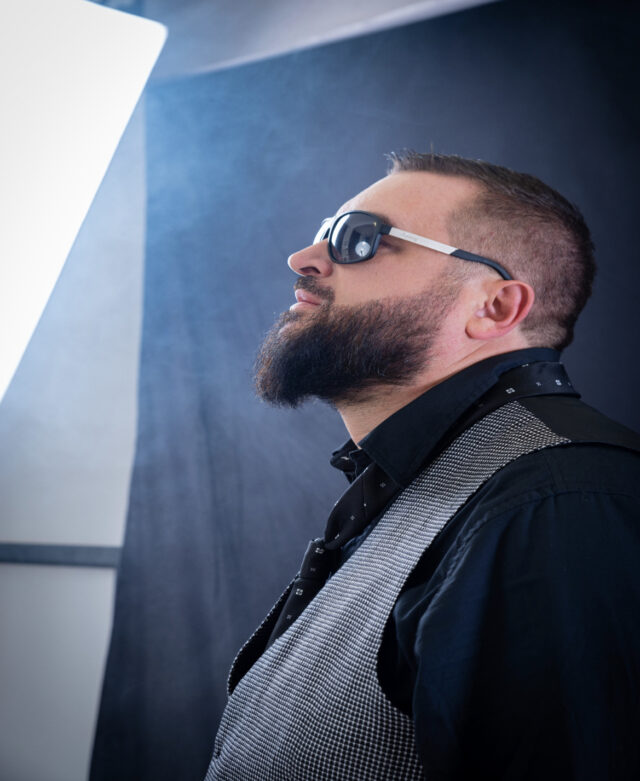Interview by: Ana Luiza Fragoso
Some stories come to us as if they had fallen from the sky, …from our backyards, and Iliyan Kuzmanov’s is a perfect illustration of this. The trajectory of this social entrepreneur, activist, writer, and author of the bestseller If You Meet Buddha Kill Him!: Pilgrimage To Freedom had no reason to come to my attention, but fate thought differently and brough his story to my knowledge. And I’m so glad it did!
A native of Bulgaria, Kuzmanov studied Law in his home country, History and Economics in Canada, and Global Politics in Germany. He has lived in England, Russia, and Asia, passing through Thailand, Malaysia, Indonesia, the Philippines, and India. It was in London that his main projects began to take shape, but Iliyan is, as we can say, a global citizen of the world.
1) You told me that all you learned about making money was in London, and Barking, Essex of course!
All my life was crisis situations, but I am deliberate optimistic and bounded guy. Starting my business in London in barley impossible situation, with $20 in my pocket, alone, in a new country, knowing few people.
And from this start position, I had 4 workers in 4 months living in UK. UK is the best place for doing business, if you are honest, responsible, have principles and at the same time you have the predator spirit. London as a city, is the best educational institution about learning how to make money, how to survive, and how to be a good man. What also I learned, the reputation is the key, and for me professionalism and honesty are the must in all I am doing! What I learned in London, was also the communication with the clients, 24/7 I am on the disposal to the people I work for! I am always looking for the balance between defending the underlying business and accepting reasonable criticism of it. Believe in yourself, and in the same time keep your head. I learned a lot, but now I know, with money, with initial capital you can do everything, even major failures, because it is a sissy work. Start with the Zero, make a million, loose it, start again, with the same enthusiasm, joy, pleasure of keep going forward.

2) But what you learned from Barking? Your money are made in the West of London, working for some of the richest and successful people, but you choose to live in Barking. And there you did an amazing job with the social venture Ezo? I was coming a lot of times to your place and was a complete gem, full with so much good vibes, wisdom and spirit!
That was the main essence, meeting all variety of people, from every part of the world, with different fortunes, different stories, different background…But all humans that can give you so much insight! Learning different styles of relations and doing business. From the pits to the tops. Unforgiven moments, so much joy!
3) I read some texts translated from your site and in one article (or maybe in your bio) it says you lived in Asia. Where in Asia?
I was traveling a lot through Asia- Thailand, Malaisia, Indonesia, the Philipines, and India. I have even had the immense luck to go to the place where Dalai Lama lives, Daramsala. There I was acting as a personal doctor for my traveling companion who had health issues. Before Asia, we went to some of the best doctors in Europe. Then we were criss-crossed Asia, while I helped prepare her fake documents to go to UK so she could continue her treatment. During this time, I had was running two very successful businesses in London, UK, and my life was a constantly changing adventure. In Thailand I start writing as a way to start expressing my emotions… It is a long story, but it truly changed my life for the better!
4) Are most of your organizations/projects based in London? (Even if they help people in other countries)
In London, I had a private maintenance company, serving private clients with more than 600 private houses I was responsible for. This business allowed me to start realising my dreams while aligning my hopes and dreams with what I was doing. I opened my second business there, Project EZO, which was a pure social enterprise, designed to help and change people’s lives. But I was young, an idealist and a bit stupid when it came to some things. It just important that it was a 100% social enterprise, had its own impact, was life changing, and get a lot of recognition and awards. It a part of my life I am truly proud of.
5) Did your “desire” for activism start when you noticed the social problems Bulgaria had? Or was there something/somewhere else that caught your attention at first?
A very long time ago I studied Law in Bulgaria, and I realised that everything around me was not according to the books I was reading. The world is a completely different place than the ideals I was taught. I decided to immigrate to Canada at the age 23. There, I started working. My first job in Canada was as Project Manager at La Maison Des Parants in Montreal. I was working with poor, immigrant children and it was a wonderful time to be honest.
It was some of the most positive and fruitful times of my life. After that I start studying and working at Concordia University in Montreal, where I studied economics, and prepared economic letters. Initially, I wanted to do a PhD in the History of Religions. I even started some courses at Loyola College, a part of Concordia University. My head professor was the Dean of the school and she taught me a lot about how the world should look, and what is means to be active and to do things in which you believe. I proudly participated in the mayoral elections in Montreal, as a liberal candidate.
in one moment, I was in London for a small break of a few months, where I tried to help save the job of a person I loved. Doing this made me realise that I had built a business that generated a couple of million pounds in several years. After that came Asia.

6) How many ongoing projects are there at the moment? How many people are involved? Are those people employed or do they work as volunteers?
The organization in London employs more than a dozen. In Bulgaria we are just a few. The main project is with Ministry of Justice, particularly the prison system in Bulgaria. There are many smaller but vocal initiatives, including promoting racial and gender equality, critical thinking, civil society, human rights, and rule of law. But not much changed since I left Bulgaria, unfortunately.
7) I’d like to understand a little more about EZO. First, what does EZO stand for? How did this project work in practical terms, did people go to the library to take the courses that were offered? How were people selected to take them? And about the housing part of the project, how exactly did it work?
Ezo was a completely self-sustainable cultural hub that was generating income for sustainable growth, not just to cover its expenses. More than 3000 books, projects with homeless people and the less incomed were completed through EZO. It’s a place for different activities. To be honest it was relevant and small, but was an important way to learn why, how, when, who, and all the QA about running a social business. Let’s call the practical school of life.
8) “Mad Man of the Social Advertising”. This sound very nice, where did it come from? Did you create it yourself or was that ‘title’ given to you by someone else? And why?
Labels are about marketing genius. Maybe it came from the ventures in different parts of the world I did, combined with the fact that I am member of Mensa International, the very high IQ society. Even when I was doing most of the things with my heart, perhaps my intelligence was always helping me, to some extent. It is about the TV drama, about the marketing genius.
9) How exactly are you helping with COVID-19 vaccination in Bulgary? Do you have help from the government as well?
Provocations, provocations, and provocations. In Bulgaria the situation with people’s fears are a true tragedy. Around 20% have gotten the COVID 19 vaccination. Most believe in such ridiculous things like UF in Iraq, Global Cabal, and that the West wants to steal Bulgarian kids to drink their blood. Politicians use the situation to gain dividends, and do not give an F. about the people. By the way, here we are in political crisis taking place since the start of global pandemic, protests, contra protests, 3 different elections. It just goes on and on. Usually people are consolidated around tragedies, here they are starting to fight each other to take the power.
10) How did you come up with the name “If You Meet Buddha Kill Him!” for your book? Did you have any problem with religious people because of that name?
It is Koan from Buddhism, that is based on the dialogue between a student and teacher. Its mean that we must think critically and not always do what our superiors tell us.

11) You mentioned the book is a social product and the amount gathered from its sales will help clean the oceans. How is that going to work? Is there a specific place? Are you going to team up with any already existing project? I’d like to understand better about the idea itself.
To be honest, everything I do is a social product. Even my business in London. When I pass, every material possession I made will go to the Salvation Army. This is the beautiful part of being a social entrepreneur, the joy is in the greater purpose, not in building comfort zones for you and your heritage. But I had an idea from the book particularly, beside all the speaking I do around it, to build a coffee roastery in Thailand. It is a sweet romantic dream. A place that can give incomes to the locals, to an NGO that cleans the oceans, and a real social product that I can sell in the EU and North America.
12) “Initiate the setup of a coffee roastery between Thailand and Malaysia” >> is this still just an idea or is there a project going on already?
Mostly it is still an idea, but it started from scratch. You know, that is the good thing about social business, you do not rely on projects or founding’s. If you make the money, you do the things you like and make a difference.
13) About that child refugees from Afghanistan, what project are they part of?
They are so much more than just a memory from Montreal. They are my most happy time there. We had the good fortune to meet a few times and I even included them in the book. Last time, I brought pizza and books for everyone and did a motivational talk for them. I just wanted them to know that they are real heroes and the road that they are one is the most difficult but there is hope.
15) Are there any future projects that involve other parts of the world?
Why not! For example, Brazil, Uganda, Cambodia, India, and other places to produce coffee which farmers sell it for pennies. And in London a kilo of Brazilian coffee roasted there can go for more than $70-80 per kilo.
There is a Dutch guy who did a social roastery in Ethiopia, with the promise that half of that price would stay with the locals. He is now selling in a few European countries. I will be glad to speak with someone in your country who cares about local farmers, the environment and wants to do crazy social things. They just need to drop me a line. All my info can be found on www.angel.social
16) And last but not least, you seem to do a lot of things. How do you find time? In a more personal way, how do get your life organized to conciliate work, fun, family and all these projects?
I do not have personal life but I love every second of what I am doing. It isn’t just a job it is a true passion that I am grateful for every day of my life.




